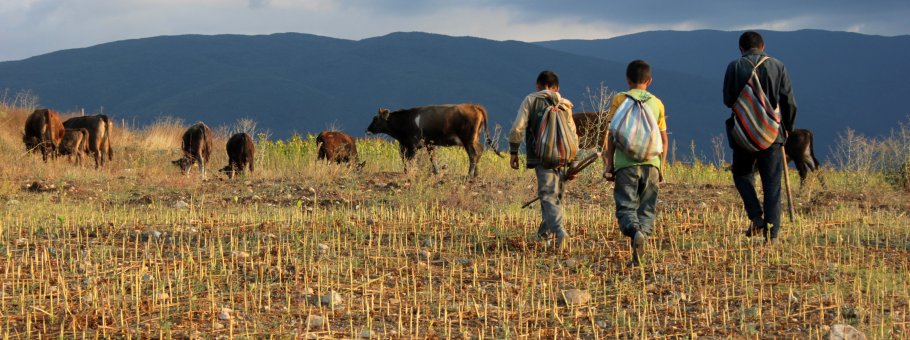-
Comparative Mapping of Traditional Rangeland Management ...
Comparative Mapping of Traditional Rangeland Management Practices in the WANA Region
Comparative Mapping of Traditional Rangeland Management Practices in the WANA Region: Governance and Land Tenure Good Practices

Project Brief
Mainstreaming policy and good practice measures contributes to the ecological sustainability of WANA rangelands.
Overview
The past two decades has seen the West Asia and North Africa region come under increasing environmental stress. Such stresses are escalating and now threaten human security in the region. Worsening water scarcity and land degradation are among the most dangerous of these challenges. The actual renewable water supply per capita is about 1100 cubic meters per capita according to the World Bank in 2007, which is far below the water security threshold of 1700 cubic meters and an expected drop by 50 percent by 2050. Drivers include unsustainable agriculture activities and pasture practices, as well as insecure land tenure and limited community participation in environmental activities resulting in land degradation. The most tangible examples of land degradation include soil erosion, deforestation, desertification and decrease of land productivity.
Agriculture and pastoralism have supported community livelihoods in the West Asia and North Africa region since its early civilisation. At this time, communities were highly aware of the importance of protecting and sustaining their lands. They defined the relationship with their land by establishing rules, distributing responsibilities and restraints as well as determining land access rights, mainly on customary bases and traditional knowledge. Even though these rangeland management practices are still in place in several communities in the WANA region, nowadays they have been abandoned by a signi cant number of communities and governmental systems, in favour of modern techniques. It is worth noting that, where present, such traditional practices have a positive impact on land sustainability, by improving biodiversity and ecosystem stability, as well as the livelihood of communities.
Activities
- Convene multi-stakeholders for an expert level (as appropriate) to validate approach, and project theory
- Country-traditional rangeland management literature review and field research
- Defining pre-conditions for local level accountability in rangeland resources management
- Identifying Criteria/Indicators for assessing pre-conditions
- Analysis of findings and agreement on conclusions and recommendations
- Publication of results and mapping of best practices for land tenure and traditional rangeland governance in WANA region
